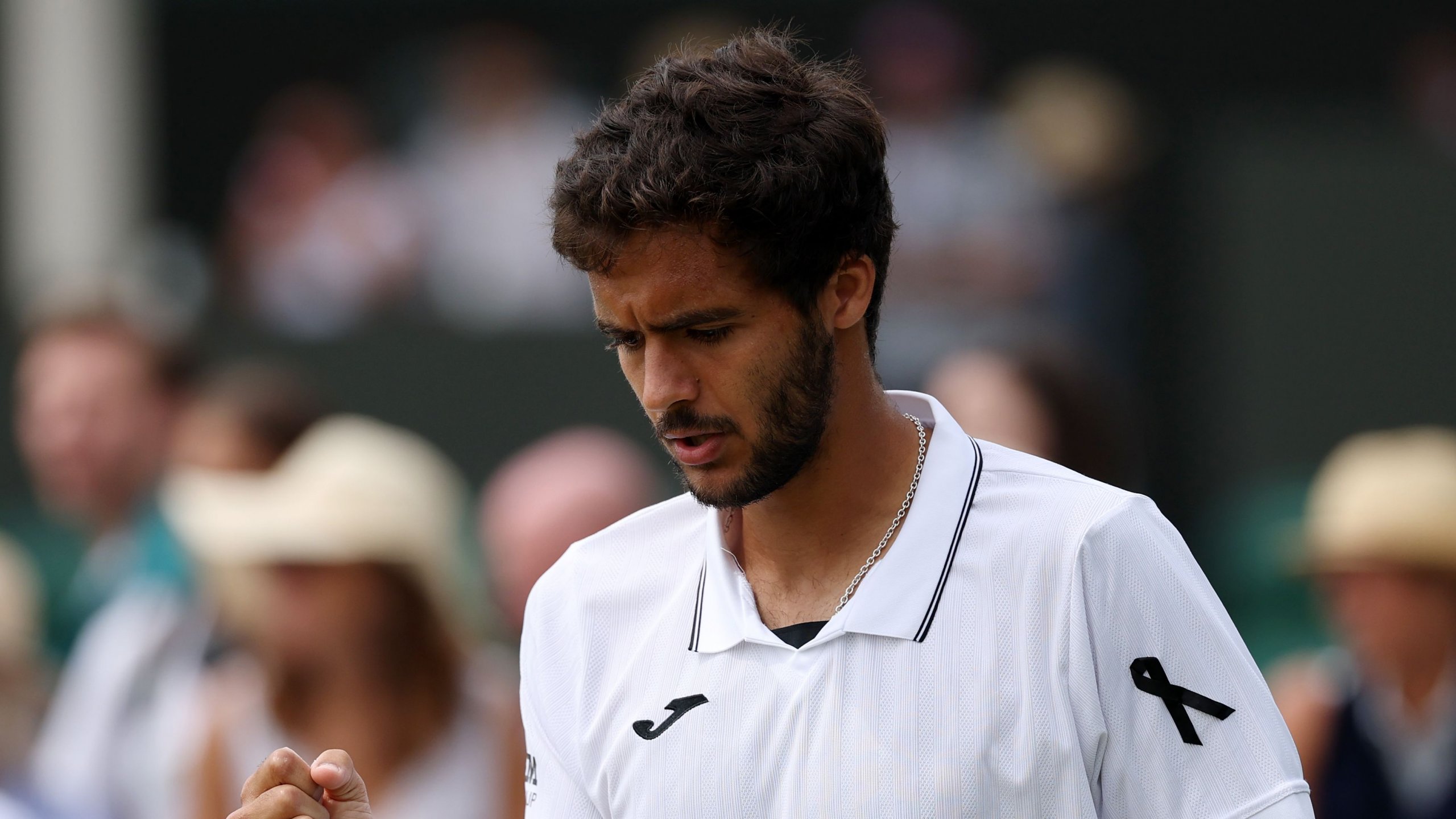Francisco Cabral Honors Diogo Jota with Wimbledon Ribbon
Francisco Cabral began his Wimbledon men’s doubles campaign wearing a discreet black ribbon pinned to the collar of his all-white shirt, a small gesture that spoke volumes about the Portuguese player’s character and his bond with compatriot and Liverpool forward Diogo Jota, who died in tragic circumstances on Thursday. As Cabral stepped onto Court 12, every serve, volley, and sprint was framed by the sombre symbol fastened above his heart, turning a routine first-round match into a moving tribute that transcended sporting codes.
Francisco Cabral Leads the Wimbledon Tribute
Tradition at the All England Club famously dictates that competitors dress head-to-toe in white, yet tournament officials granted Cabral permission to attach the black ribbon after he explained its significance. Francisco Cabral, 27, has known Diogo Jota since their junior days in Porto. Though their careers diverged—Cabral gravitated toward the baseline while Jota dribbled past defenders—the pair remained close. Friends describe late-night gaming sessions, endless football-tennis duels, and a mutual admiration that bridged football and tennis.
Remembering Diogo Jota’s Impact Beyond Football
Diogo Jota’s rise from Paços de Ferreira to Premier League glory with Liverpool inspired countless Portuguese athletes, Cabral included. Jota’s relentless work ethic, ability to reinvent positions, and generosity with fans made him a national icon. His sudden passing has left a vacuum felt across sports. Cabral admitted in a pre-match press conference that he wrestled with the idea of withdrawing from the tournament, confessing, “Playing tennis while mourning feels unnatural, but Diogo would have told me to fight for every point.”
Cabral’s Gesture Resonates Across Centre Court
Although Cabral’s match was not on a show court, word of the tribute spread quickly. Spectators whispered about the ribbon, British commentators highlighted its meaning, and social media buzzed with clips of Cabral touching the ribbon after big points, almost as if exchanging silent high-fives with his late friend. Liverpool supporters, ever present in London, flocked to the outer courts to lend audible support, sporting red scarves amid the sea of Wimbledon whites.
The All England Club’s Flexibility on Attire Rules
The decision to allow Francisco Cabral the black ribbon signals a broader, more compassionate stance from Wimbledon officials. Historically strict on dress code, the club has softened in recent years, permitting subtle expressions of solidarity, such as Ukraine-blue ribbons and breast-cancer pink caps for warm-ups. By honouring Cabral’s request, organisers demonstrated that empathy need not clash with tradition.
How Cabral’s Performance Mirrored His Grief
On court, Cabral channelled emotion into controlled aggression. His trademark kick serve kicked a little higher, backhand slices skidded a shade lower, and fist pumps were tempered by an upward glance. Partnering with Brazil’s Rafael Matos, he edged past the experienced German pair Andreas Mies and Kevin Krawietz in four tight sets: 6-4, 3-6, 7-6(5), 6-4. The victory, Cabral said, “felt like Diogo sliding a through-ball—I just had to finish.”
Francisco Cabral’s Message to Young Athletes
In the mixed-zone afterward, Francisco Cabral urged aspiring athletes to “chase excellence the way Jota did.” He recalled Jota’s mantra—“train once more, watch one more clip, recover one more hour”—and vowed to tape those words on his racket bag. Cabral also revealed plans to auction the match-worn ribbon and donate proceeds to a foundation supporting underprivileged youth in Porto, mirroring Jota’s own charitable efforts.
Reaction From the Football World
Liverpool captain Virgil van Dijk tweeted a photo of Cabral’s ribbon with the caption, “Respect,” while manager Jürgen Klopp said in his pre-season press briefing: “Different sport, same family. Thank you, Francisco.” Portugal’s Football Federation sent a congratulatory message after Cabral’s win, stating that “Diogo’s spirit continues to compete through friends like you.”
Looking Ahead at Wimbledon
Cabral and Matos now face the Australian duo of Max Purcell and Matthew Ebden, seeded fifth. Cabral confirmed he will wear the ribbon for as long as he remains in the tournament, turning each new match into an encore memorial. He admitted navigating grief amid a Grand Slam schedule is challenging, but he draws strength from routine: morning practice, physio, a visit to the players’ chapel, then match play.
Sporting Community’s Collective Mourning
Across London, tributes for Jota ripple beyond Wimbledon. At Anfield’s club store pop-up on Oxford Street, fans wrote messages on a giant jersey; a Sunday league side played in black armbands; and Portuguese restaurants offered free “pastéis de Jota” to patrons who donated to mental-health charities. Cabral’s gesture thus becomes one note in a larger symphony of remembrance.
The Cultural Significance of a Simple Ribbon
Francisco Cabral’s black ribbon underscores how athletes wield platforms far bigger than courts or pitches. A ribbon costs pennies, yet its symbolism can unify nations in grief and pride. For Cabral, it is a conversation starter about empathy in elite sport; for spectators, it is a reminder that rivalries pause when humanity calls.
Future Tributes Planned
Organisers of the Estoril Open, Portugal’s premier tennis event, have announced a “Diogo Jota Day” for next spring, where all local players, including Francisco Cabral, will compete wearing commemorative patches. Liverpool’s pre-season tour will include a moment of applause before each match, ensuring Jota’s legacy resonates in both locker rooms and stadiums.
Final Thoughts
Sports often divide along team colours, yet moments like Cabral’s ribbon reveal their power to connect. A tennis player mourning a footballer reminds us that passion, dedication, and loss speak a universal language—one that needs no translator.
Opinion: Cabral’s understated tribute was far more powerful than any elaborate ceremony. By weaving grief into the fabric of competition, he showed that excellence and empathy can share the same stage—and that, sometimes, the smallest gestures echo the loudest.
Your global gateway to nonstop football coverage:
Goal Sports News
Share this content:
